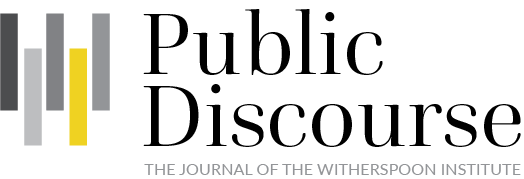PAST SEMINARS
Fall 2025
Burnout Society
Led by R. J. Snell

Ours is an achievement society in which our value is tied to accomplishment. Importantly, however, the judgments that matter most are our own judgments about our achievements. In the end, we increasingly discover that no achievement satisfies our demands and we give in to a culture of total work, resulting in exhaustion, burnout, and sense of pointlessness. How are we to recover and work well? How are we to have hope that our work could matter and could satisfy us?
Fine Art in the Frick Collection, NYC
Led by Michael Carlowicz
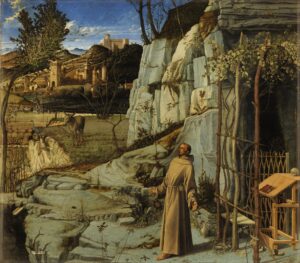
How do we cultivate interior stillness and contemplate beauty in art? The recently reopened Frick Collection in New York City, which holds a private collection of fine art mainly from 14th- to 19th-century Europe, offers plentiful opportunities to consider the richness of things not meant to be consumed and evacuated of meaning but contemplated and lingered with. A special exhibit with artifacts from the Church of the Holy Sepulcher in Jerusalem invites further rumination on how objects become integrals parts of rituals and possess depth as symbols.
Spring 2025
Philosophy in Stone: On Architecture and Public Space
Led by R. J. Snell
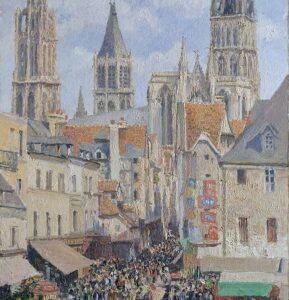
Material culture, including architecture and public space, is neither simply adornment or brute utility but an expression of value: what we think people are, what we think people are for, and how we think people live and work together. In this seminar we explore architecture and urban planning, drawing on the thought of Roger Scruton, Philip Bess, and Léon Krier (among others).
Being in Love: Vikings and Tinder
Led by R. J. Snell
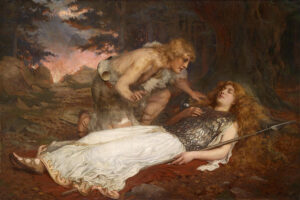
Drawing on the work of Mads Larsen, this two-week seminar will examine his ideas of the Four Sexual Revolutions in the West. The Fourth, he teasingly suggests, will occur in 2029, explaining “dating dysfunction and demographic collapse.”
Aristotelian Reading Group
Led by Sebastian Hayden

A line-by-line reading of selected sections of the Nicomachean Ethics. No previous study of Aristotle needed, and reading prior to the seminar is not required. A light breakfast will be provided.
Graduate Seminar on Pragmatism
Graduate Seminar
Led by Brandon Van Dyck
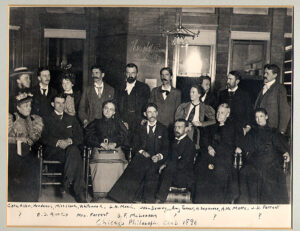
This seminar will explore the most important philosophical tradition of American origin: pragmatism. We will discuss how our perceptions and language relate to objective reality, how ignorant we are of objective reality, and how we should reason and behave in light of our ignorance. We will refer to the ideas of and read selections from, William James, Charles Sanders Peirce, John Dewey, Richard Rorty, Hilary Putnam, and Donald Hoffman.
Genetic Engineering and Human Freedom
High School Seminar
Led by Janet Madigan
![]()
Ever since the Enlightenment, modern man has looked to science to help unravel the mysteries of human existence. While science has opened innumerable vistas for exploring the nature of reality, untethered from its grounding in objective truth, it leads to scientific materialism, or the notion that all things can be explained as a product of physical and chemical processes. The result, ironically, is not an expanded view of reality, but a cramped one, since the human soul cannot be understood in the same way as the material world. The field of genetic engineering provides an illuminating look at the role of science at the juncture of human possibilities and limitations. Have scientific advances helped us to better understand human nature? Can we as human beings reconfigure our bodily reality without affecting our souls in the process? Are humans inherently autonomous or social? If the latter, would our ability to manipulate our genetic identities change the relationship between science and politics? If so, how?
Enchantment and Fairy-Stories
Led by R. J. Snell
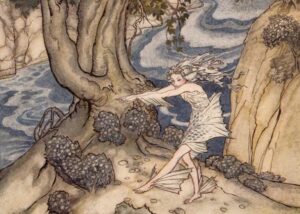
Among some, there is a mood and call for re-enchantment of world and imagination, largely as a response to the loss of the sense of the sacred and radical immanentizing of our lives. This may or may not be a good idea: the classic 1947 Tolkien essay, “On Fairy-Stories” has much to offer in reaching a reasonable judgment.
Natural Law Theory Seminar
Led by Matthew X. Wilson, R. J. Snell, and Robert P. George
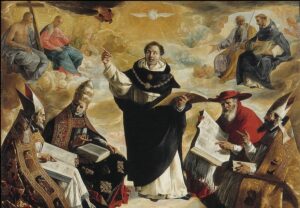
What is “New Natural Law Theory,” and are there “old” natural law theories that came before it? Does “natural law” merely consist of assigning moral weight to empirically-observable laws of nature? What is natural law’s place in the relationship between human reason and divine revelation? This seminar will examine the revival of natural law that began in the 1960s, identifying and assessing its key claims and philosophical underpinnings. The seminar will place “New Natural Law” in conversation with other schools of thinking about ethics, political morality, and jurisprudence—including critiques of New Natural Law Theory from more traditional Thomistic theorists as well as criticisms from liberal philosophers.
The Surveillance State and Society
High School Seminar
Led by Luke Foster
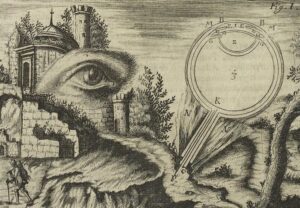 How do we retain our humanity in the Information Age? What practices and institutions from the pre-computing world can guide us when social media proposes to replace socializing? All three of our authors in this series—Vonnegut, Hayek, and Lewis—lived through the civilizational cataclysm of World War II, and all of them took seriously the possibility that vast computing power would be used in an attempt to rationally organize entire societies. Today their worries seem to have been realized by the capacity of Big Tech to aggregate the data of billions of people, in collaboration with governments. Drawing on these texts, we will discuss how to master our tools rather than be mastered by them.
How do we retain our humanity in the Information Age? What practices and institutions from the pre-computing world can guide us when social media proposes to replace socializing? All three of our authors in this series—Vonnegut, Hayek, and Lewis—lived through the civilizational cataclysm of World War II, and all of them took seriously the possibility that vast computing power would be used in an attempt to rationally organize entire societies. Today their worries seem to have been realized by the capacity of Big Tech to aggregate the data of billions of people, in collaboration with governments. Drawing on these texts, we will discuss how to master our tools rather than be mastered by them.
Transhumanism and Death
High School Seminar
Led by Charles Rubin
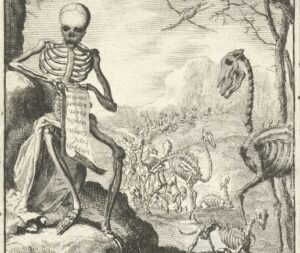 A longing for immortality is a widespread human trait, but today’s transhumanists have transformed it into what they claim is a practical program for (at least) radical extension of the human lifespan. How would putting off death into an indefinite future reshape how we live and understand our lives? Would freedom from death be the greatest of liberations, or would it compromise the possibility of human happiness?
A longing for immortality is a widespread human trait, but today’s transhumanists have transformed it into what they claim is a practical program for (at least) radical extension of the human lifespan. How would putting off death into an indefinite future reshape how we live and understand our lives? Would freedom from death be the greatest of liberations, or would it compromise the possibility of human happiness?
Fall 2024
God Matters
Led by R.J. Snell
 According to Thomas Aquinas, some truths about God surpass the capacity of unaided human reason and require revelation, while other truths are knowable by unaided, natural reason. This seminar explores some puzzles of classical theism through reason alone, without appeal to revelation or any particular religious tradition or authority. What’s the existence of God? How does God’s existence relate to God’s attributes—and does this work intelligibly? How does divine knowledge allow for human freedom? What about evil?
According to Thomas Aquinas, some truths about God surpass the capacity of unaided human reason and require revelation, while other truths are knowable by unaided, natural reason. This seminar explores some puzzles of classical theism through reason alone, without appeal to revelation or any particular religious tradition or authority. What’s the existence of God? How does God’s existence relate to God’s attributes—and does this work intelligibly? How does divine knowledge allow for human freedom? What about evil?
Reading a variety of texts and exploring a variety of questions, the seminar explores whether or not classical theism, as understood philosophically, is coherent.
A.I. and Religious Belief
High School Seminar
Led by Joseph Vukov
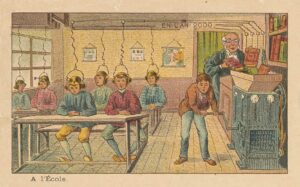 What are the differences between human intelligence and artificial intelligence? To what extent should religious believers engage with A.I.? How might such engagement impact religious belief and practice?
What are the differences between human intelligence and artificial intelligence? To what extent should religious believers engage with A.I.? How might such engagement impact religious belief and practice?
Technology and Human Agency
High School Seminar
Led by Landon Hobbs
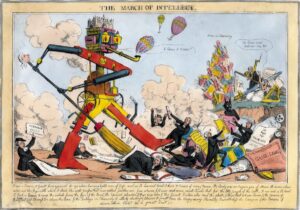 What attitude should we have toward recent developments in digital technology? Are these developments providing new tools to enhance human flourishing—or are they undercutting our ability to cultivate intellectual and moral virtues? Are they an aid or a hindrance to collectively building up and maintaining robust and meaningful communities and polities? We will consider these questions in the light of both classical philosophical reflections on technological revolution and contemporary social commentary.
What attitude should we have toward recent developments in digital technology? Are these developments providing new tools to enhance human flourishing—or are they undercutting our ability to cultivate intellectual and moral virtues? Are they an aid or a hindrance to collectively building up and maintaining robust and meaningful communities and polities? We will consider these questions in the light of both classical philosophical reflections on technological revolution and contemporary social commentary.
Habits of the Mind
Led by R.J. Snell
 We tend to be familiar with the moral virtues—wisdom, courage, moderation, and justice, say—and many will know Aristotle’s articulation of the intellectual virtues, but Aristotle’s intellectual virtues seem abstract and not especially relevant to our lives. Since we’re intellectual beings, the intellectual virtues oughtn’t be alien to our well-being, however. In this seminar, we examine more contemporary texts, including Hannah Arendt, Simone Weil, and Iris Murdoch, on intellectual habits such as attention, reading, understanding, and judging. Thinking, it turns out, is not merely a technical, neutral matter of analytic capacity, but a commitment to being in the world in a certain mode and way, and we can have habits of thought contributing to, or taking away from, our flourishing.
We tend to be familiar with the moral virtues—wisdom, courage, moderation, and justice, say—and many will know Aristotle’s articulation of the intellectual virtues, but Aristotle’s intellectual virtues seem abstract and not especially relevant to our lives. Since we’re intellectual beings, the intellectual virtues oughtn’t be alien to our well-being, however. In this seminar, we examine more contemporary texts, including Hannah Arendt, Simone Weil, and Iris Murdoch, on intellectual habits such as attention, reading, understanding, and judging. Thinking, it turns out, is not merely a technical, neutral matter of analytic capacity, but a commitment to being in the world in a certain mode and way, and we can have habits of thought contributing to, or taking away from, our flourishing.
The Consequences of a Trump or Harris Victory
Graduate Seminar
Led by Brandon Van Dyck
 How will the outcome of the upcoming presidential election affect the U.S. and U.S. policy? This is a positive question, not a normative one; our political preferences are irrelevant. In this semester’s graduate discussion group, we’ll consider the effects of a Trump or Harris victory on the economy, health care, immigration, and the Supreme Court, among other topics.
How will the outcome of the upcoming presidential election affect the U.S. and U.S. policy? This is a positive question, not a normative one; our political preferences are irrelevant. In this semester’s graduate discussion group, we’ll consider the effects of a Trump or Harris victory on the economy, health care, immigration, and the Supreme Court, among other topics.
Aristotelian Reading Group
Led by Sebastian Hayden
 A line-by-line reading of selected sections of the Nicomachean Ethics. No previous study of Aristotle needed, and reading prior to the seminar is not required.
A line-by-line reading of selected sections of the Nicomachean Ethics. No previous study of Aristotle needed, and reading prior to the seminar is not required.
Spring 2024
The Friendship of Men and Women
Led by R.J. Snell
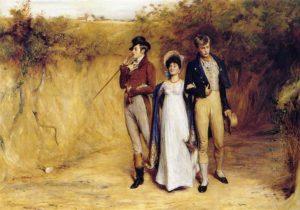 We are by nature social beings and cannot flourish without friendship. Some, however, suggest that men and women cannot be friends with each other, or at least that romantic friendship and the friendship proper to marriage is the only form of friendship available between the sexes. Is this true? What sort of anthropology would that assume? Does it overlook the dignity of all?
We are by nature social beings and cannot flourish without friendship. Some, however, suggest that men and women cannot be friends with each other, or at least that romantic friendship and the friendship proper to marriage is the only form of friendship available between the sexes. Is this true? What sort of anthropology would that assume? Does it overlook the dignity of all?
Verdi's La Forza del Destino at the Met Opera, NYC
Led by John David Corwin
 Do we have free will? Or does fate determine the shape of our lives? Verdi’s opera La Forza del Destino explores this fundamental question to human existence through another fundamental human experience – love
Do we have free will? Or does fate determine the shape of our lives? Verdi’s opera La Forza del Destino explores this fundamental question to human existence through another fundamental human experience – love
Philosophy of Science
Graduate Seminar
Led by Jamie Boulding and Brandon Van Dyck
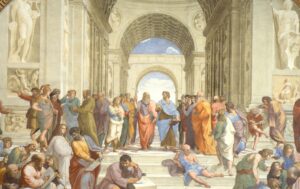 While science has been highly successful in making sense of the physical world, it raises a number of philosophical questions that often go unexamined. What is science? What are its core assumptions, and what are they based on? What is scientific progress? What does it mean to be an ethical scientist? This seminar will consider a number of such questions related to the meaning, foundations, scope, and purpose of science. No prior background in science or philosophy is required.
While science has been highly successful in making sense of the physical world, it raises a number of philosophical questions that often go unexamined. What is science? What are its core assumptions, and what are they based on? What is scientific progress? What does it mean to be an ethical scientist? This seminar will consider a number of such questions related to the meaning, foundations, scope, and purpose of science. No prior background in science or philosophy is required.
History of Ideas: The Forgotten Texts
Led by R.J. Snell
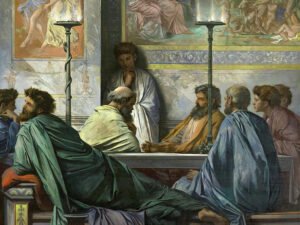 Different schools of thought gravitate to different texts, and to different interpretations of those texts. This seminar responds to requests from students who attended a philosophy conference and were surprised to hear attendees referring to texts (obvious texts in that particular context, texts everyone was assumed to know) that are not in the conversation or assumed at Princeton. This seminar provides a crash course in the forgotten figures and interpretations; or, figures that some schools of thought forget while others remember. This semester will look at Iris Murdoch, Pierre Manent, Edith Stein, Jacques Maritain, Leon and Amy Kass.
Different schools of thought gravitate to different texts, and to different interpretations of those texts. This seminar responds to requests from students who attended a philosophy conference and were surprised to hear attendees referring to texts (obvious texts in that particular context, texts everyone was assumed to know) that are not in the conversation or assumed at Princeton. This seminar provides a crash course in the forgotten figures and interpretations; or, figures that some schools of thought forget while others remember. This semester will look at Iris Murdoch, Pierre Manent, Edith Stein, Jacques Maritain, Leon and Amy Kass.
Dances at a Gathering and Brahms-Schoenberg Quartet at the NYC Ballet
Led by John David Corwin
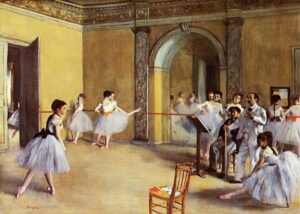 Two performances: The first set to music by Frederic Chopin and choreographed by Jerome Robbins, Dances at a Gathering presents episodes of camaraderie, comedy, and wit. The second set to music by Johannes Brahms and choreographed by George Balanchine, the Brahms-Schoenberg Quartet celebrates the beauty of ballet with its romantic atmospheres and extravagant costumes.
Two performances: The first set to music by Frederic Chopin and choreographed by Jerome Robbins, Dances at a Gathering presents episodes of camaraderie, comedy, and wit. The second set to music by Johannes Brahms and choreographed by George Balanchine, the Brahms-Schoenberg Quartet celebrates the beauty of ballet with its romantic atmospheres and extravagant costumes.
Spring 2023
Faith and Reason
High School Seminar
Led by Jamie Boulding
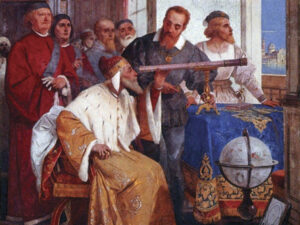 The relationship between faith and reason is one of the most important questions in the history of philosophy and religion. Traditionally, faith and reason were both viewed as possible grounds for religious belief. Some argued that, properly understood, there can be no conflict between the two. Others saw faith and reason as being in competition or even in conflict, while still others insisted that because they concern different things they should be kept apart. In recent years, this debate has often been reframed in terms of faith and science.
The relationship between faith and reason is one of the most important questions in the history of philosophy and religion. Traditionally, faith and reason were both viewed as possible grounds for religious belief. Some argued that, properly understood, there can be no conflict between the two. Others saw faith and reason as being in competition or even in conflict, while still others insisted that because they concern different things they should be kept apart. In recent years, this debate has often been reframed in terms of faith and science.
In this three-part seminar, we will trace the historical and philosophical development of thought on the relationship between faith and reason, beginning with the medieval theologian Thomas Aquinas, whose ideas about how to define faith and reason and how they relate to each other continue to be deeply influential. We will then reflect on the early modern philosopher Blaise Pascal’s famous “wager,” an argument for belief in God that raises important questions about the role and limits of both faith and reason. Finally, we will read one of Pope John Paul II’s encyclicals, which considers faith and reason in relation to modern intellectual trends.
Body Matters
Led by R.J. Snell
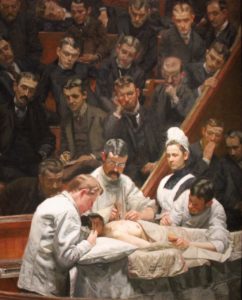 There is a gnostic tendency in our current moment (even among some materialists) which views the body as somehow not equivalent to our selves, something we own or use. At the same time, in our disenchantment, we don’t see the body as having symbolic form, as revealing anything especially meaningful or true. It’s just matter, the wet-robot, signifying not very much. But perhaps that’s not true, and if we examine the body we can learn something from our finitude, needs, dependence, weakness, dying, and from the fact that our bodies are sexed.
There is a gnostic tendency in our current moment (even among some materialists) which views the body as somehow not equivalent to our selves, something we own or use. At the same time, in our disenchantment, we don’t see the body as having symbolic form, as revealing anything especially meaningful or true. It’s just matter, the wet-robot, signifying not very much. But perhaps that’s not true, and if we examine the body we can learn something from our finitude, needs, dependence, weakness, dying, and from the fact that our bodies are sexed.
Faith and Science
Led by Jamie Boulding
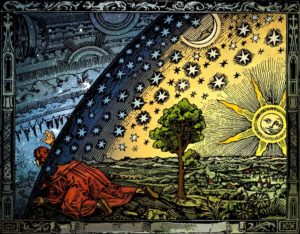 This seminar will explore the relationship between faith and science, one of the most important intellectual questions of our time. We will consider the extent to which new developments in artificial intelligence, technology, neuroscience, and astrobiology might bear upon our view of human nature, ethics, and freedom. No scientific knowledge is needed, and all questions and perspectives are welcomed.
This seminar will explore the relationship between faith and science, one of the most important intellectual questions of our time. We will consider the extent to which new developments in artificial intelligence, technology, neuroscience, and astrobiology might bear upon our view of human nature, ethics, and freedom. No scientific knowledge is needed, and all questions and perspectives are welcomed.
Augustine’s Confessions: Memory and the Self
High School Seminar
Led by John David Corwin
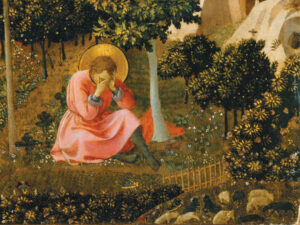 Augustine’s Confessions marks a key shift within the long history of reflection on the self and the formation of personal identity. Augustine emphasizes the interior formation of the self and soul, a central aspect of which is memory. He explores this explicitly in Book 10 of Confessions, but the entire work is itself preoccupied with and a work of memory.
Augustine’s Confessions marks a key shift within the long history of reflection on the self and the formation of personal identity. Augustine emphasizes the interior formation of the self and soul, a central aspect of which is memory. He explores this explicitly in Book 10 of Confessions, but the entire work is itself preoccupied with and a work of memory.
In this seminar, we will read selections of Augustine’s Confessions and consider how we are shaped by memory, a memory that both remembers and forgets.
C.S. Lewis, The Abolition of Man
High School Seminar
Led by Jamie Boulding
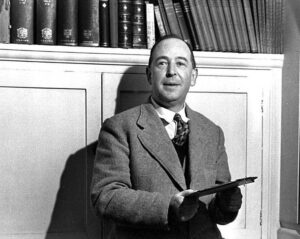 One of C.S. Lewis’s most important and challenging books, The Abolition of Man offers a powerful account of the importance and relevance of universal moral values, as well as the dangers of denying such values in a scientific and technological age. This three-part seminar will guide high school students through the key philosophical and ethical questions that Lewis explores: What is the purpose of education? How do we know there are objective values, and what are they? What might happen if we reject these values? And how might Lewis’s insights bear upon how we think about science and society today?
One of C.S. Lewis’s most important and challenging books, The Abolition of Man offers a powerful account of the importance and relevance of universal moral values, as well as the dangers of denying such values in a scientific and technological age. This three-part seminar will guide high school students through the key philosophical and ethical questions that Lewis explores: What is the purpose of education? How do we know there are objective values, and what are they? What might happen if we reject these values? And how might Lewis’s insights bear upon how we think about science and society today?
Philosophical Stories: Intellectual History They Don't Tell You
Led by R.J. Snell
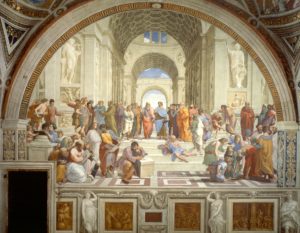 Every intellectual geneology has thinkers it turns to and thinkers it neglects. In these occasional seminars, a history of philosophy (and philosophical theology) we’ll include some overlooked figures and overlooked stories of the history of ideas.
Every intellectual geneology has thinkers it turns to and thinkers it neglects. In these occasional seminars, a history of philosophy (and philosophical theology) we’ll include some overlooked figures and overlooked stories of the history of ideas.
The Character of Beauty
Led by John David Corwin
 In Fyodor Dostoevsky’s The Idiot, Prince Myshkin claims that “beauty will save the world.” Today’s culture inundates us with beauty and aesthetic experiences, yet we seem no closer to being saved than in Dostoevsky’s day. Does that mean he is wrong? Or does it suggest that something is wrong with the beauty offered to us and to which we look for some form of redemption? In this seminar, we’ll look at how beauty is portrayed in the works of Flannery O’Connor, Dostoevsky, C.S. Lewis, and others, and we’ll consider beauty’s redemptive capacity.
In Fyodor Dostoevsky’s The Idiot, Prince Myshkin claims that “beauty will save the world.” Today’s culture inundates us with beauty and aesthetic experiences, yet we seem no closer to being saved than in Dostoevsky’s day. Does that mean he is wrong? Or does it suggest that something is wrong with the beauty offered to us and to which we look for some form of redemption? In this seminar, we’ll look at how beauty is portrayed in the works of Flannery O’Connor, Dostoevsky, C.S. Lewis, and others, and we’ll consider beauty’s redemptive capacity.
Fall 2023
Faith and Astrobiology
Led by Jamie Boulding
 This seminar will explore the theological implications of the search for intelligent life in the universe. It will feature presentations by Christopher Baglow (Notre Dame), Ted Peters (CTNS, Berkeley). It is offered with the support of a Lemaitre Grant from the Collegium Institute’s Magi Project.
This seminar will explore the theological implications of the search for intelligent life in the universe. It will feature presentations by Christopher Baglow (Notre Dame), Ted Peters (CTNS, Berkeley). It is offered with the support of a Lemaitre Grant from the Collegium Institute’s Magi Project.
History of Ideas: The Forgotten Texts
Led by R.J. Snell
 Different schools of thought gravitate to different texts, and to different interpretations of those texts. This seminar responds to requests from several students who attended a philosophy conference and were surprised to hear attendees referring to texts (obvious texts in that particular context, texts everyone was assumed to know) that are not in the conversation or assumed at Princeton. This seminar provides a crash course in the forgotten figures and interpretations; or, figures that some schools of thought forget while others remember. Examples include Alasdair MacIntyre, ressourcement and nouvelle theologie thinkers (and opponents), Leo Strauss, Pierre Manent, Edith Stein, and more.
Different schools of thought gravitate to different texts, and to different interpretations of those texts. This seminar responds to requests from several students who attended a philosophy conference and were surprised to hear attendees referring to texts (obvious texts in that particular context, texts everyone was assumed to know) that are not in the conversation or assumed at Princeton. This seminar provides a crash course in the forgotten figures and interpretations; or, figures that some schools of thought forget while others remember. Examples include Alasdair MacIntyre, ressourcement and nouvelle theologie thinkers (and opponents), Leo Strauss, Pierre Manent, Edith Stein, and more.
Manet & Degas at The Metropolitan Museum of Art, NYC
Led by John David Corwin
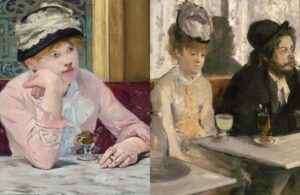 The artists Edouard Manet and Edgar Degas are pivotal figures of 19th century art, and they developed a deep friendship, albeit tumultuous. This fall, a special exhibit at New York’s Metropolitan Museum of Art brings together the work of these two artists to explore the similarities and differences in their painting and to consider how each shaped the other personally.
The artists Edouard Manet and Edgar Degas are pivotal figures of 19th century art, and they developed a deep friendship, albeit tumultuous. This fall, a special exhibit at New York’s Metropolitan Museum of Art brings together the work of these two artists to explore the similarities and differences in their painting and to consider how each shaped the other personally.
Before visiting the exhibit at The Met on Friday, Oct 27, we will meet for an introduction to Manet and Degas and discuss key themes of their work, like landscape scenes and the role of the female figure.
Distracted Selves
Led by R.J. Snell
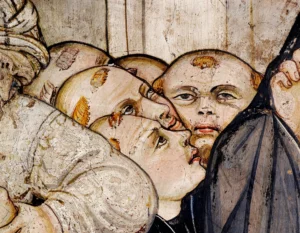 Everyone knows their attention is divided and fragmented by social media, the internet, and ceaseless entertainment and demands for attention. Some of this is very natural, simply an extension of our natural interests and curiosity, but some of this frustrates our attempts to become actualized, self-directed individuals, and plays on our expressive individualism, narcissism, and demand for spectacle. There is no genuine self without a rich interiority, without the inner castle, but how do we attain this if we are dissolute?
Everyone knows their attention is divided and fragmented by social media, the internet, and ceaseless entertainment and demands for attention. Some of this is very natural, simply an extension of our natural interests and curiosity, but some of this frustrates our attempts to become actualized, self-directed individuals, and plays on our expressive individualism, narcissism, and demand for spectacle. There is no genuine self without a rich interiority, without the inner castle, but how do we attain this if we are dissolute?
Aquinas on Law, Morality, and Politics
Led by R.J. Snell
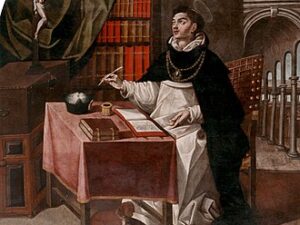 A line-by-line read of selected sections of the Summa theologica, with particular emphasis on the nature of the moral act and the treatise on law. No previous study of Aquinas needed, no pre-reading needed before seminars; all are welcome.
A line-by-line read of selected sections of the Summa theologica, with particular emphasis on the nature of the moral act and the treatise on law. No previous study of Aquinas needed, no pre-reading needed before seminars; all are welcome.
Mozart's Die Zauberflöte (The Magic Flute), The Metropolitan Opera, NYC
Led by John David Corwin
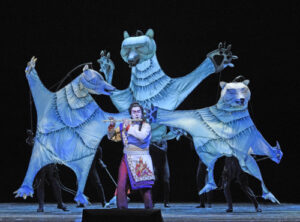 Premiering two months before his untimely death, Mozart’s Die Zauberflöte (The Magic Flute) tells a fairy tale of Prince Tamino’s quest to win over Princess Pamina. Before seeing the opera performed by the Met Opera, we will meet to read through the opera together.
Premiering two months before his untimely death, Mozart’s Die Zauberflöte (The Magic Flute) tells a fairy tale of Prince Tamino’s quest to win over Princess Pamina. Before seeing the opera performed by the Met Opera, we will meet to read through the opera together.
America's Political and Cultural Prospects
Graduate Seminar
Led by Jamie Boulding and Brandon Van Dyck
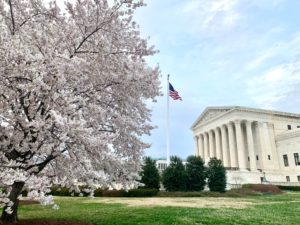 What are the trends and prospects for American politics and culture today? In light of political polarization, distrusted institutions, and social unrest, some commentators see a troubled road ahead. With reference to historical and contemporary political and philosophical thinkers, this seminar will consider different ways of evaluating America’s political and cultural challenges.
What are the trends and prospects for American politics and culture today? In light of political polarization, distrusted institutions, and social unrest, some commentators see a troubled road ahead. With reference to historical and contemporary political and philosophical thinkers, this seminar will consider different ways of evaluating America’s political and cultural challenges.
Fall 2022
How to Become Somebody: Roots and Freedom
Led by R. J. Snell
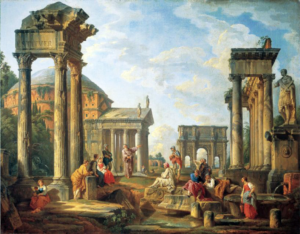 A Financial Times article distinguishes two types of people—anybodys and somebodys. A somebody is from somewhere particular, has a home town, lives near their grandparents, and knows the lore and mores of their place. They are rooted in place, and in that place they are a somebody.
A Financial Times article distinguishes two types of people—anybodys and somebodys. A somebody is from somewhere particular, has a home town, lives near their grandparents, and knows the lore and mores of their place. They are rooted in place, and in that place they are a somebody.
Anybodys are on the move and can live anywhere, and likely will live in many places. Unlike a somebody, they don’t stick, they advance. Universities tend to train us to be on the move, to advance, and to look for better options and opportunities. With this comes all sorts of advantages, but also—at times—confusion and alienation. How do we form community and friendships—the way a somebody does—while recognizing our formation and skills have already put us on the move? How do we exercise freedom without alienation or nostalgia?
On Hope
Led by R. J. Snell
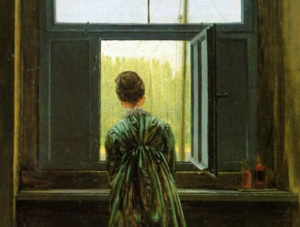
The poet Gerard Manley Hopkins suggests that “wisdom is early to despair.” Despite enormous advantages of wealth and technology, many in our society seem to agree with him. Deaths of despair are a leading cause of mortality, others think politics is unredeemable, others conclude that life has little point or meaning, and still others simply “check out” into distractions and entertainment. Given this, hope can superficial, a concocted optimism which is no more than naivete. But perhaps that’s not true; perhaps hopefulness is a genuine virtue firmly grounded in reality.
Why So Serious? The Virtue of Comedy
Led by John David Corwin
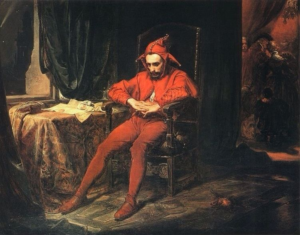 Irony is indispensable to humor. Its deliberate undermining of expectations provides an occasion to laugh while often times criticizing culture and politics. Yet, we find ourselves in a moment where criticism costs more than a laugh, so we do not laugh at all. Far from serving humor, irony now reflects what David Foster Wallace described as a “great despair and stasis in U.S. culture.” What is lost when we forget how to laugh? Does comedy offer us more than a good laugh? Can humor help us lead a good life?
Irony is indispensable to humor. Its deliberate undermining of expectations provides an occasion to laugh while often times criticizing culture and politics. Yet, we find ourselves in a moment where criticism costs more than a laugh, so we do not laugh at all. Far from serving humor, irony now reflects what David Foster Wallace described as a “great despair and stasis in U.S. culture.” What is lost when we forget how to laugh? Does comedy offer us more than a good laugh? Can humor help us lead a good life?
Good, Evil, and Happiness: Summa Contra Gentiles
Led by R. J. Snell
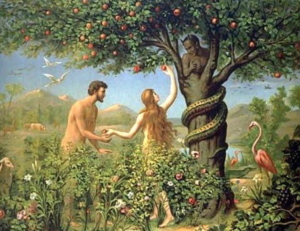 This seminar is a close reading of Book III of the Summa Contra Gentiles of Thomas Aquinas. Topics include the cause of good and evil, human happiness, God’s providence, and the possibility of human freedom, all through the resources of natural philosophy. While pre-reading of the text is encouraged it is not required as the seminar will proceed slowly through the text, including reading selected and important sections together. No previous knowledge of Aquinas is needed and any and all questions are welcomed.
This seminar is a close reading of Book III of the Summa Contra Gentiles of Thomas Aquinas. Topics include the cause of good and evil, human happiness, God’s providence, and the possibility of human freedom, all through the resources of natural philosophy. While pre-reading of the text is encouraged it is not required as the seminar will proceed slowly through the text, including reading selected and important sections together. No previous knowledge of Aquinas is needed and any and all questions are welcomed.
2020-2021
(Re)Building A Common Home: The Thought of Rabbi Jonathan Sacks
Led by R. J. Snell
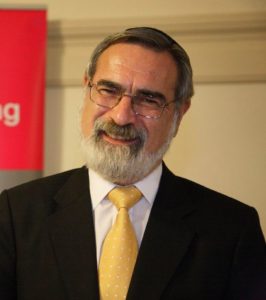
Many observe a lack of unity in the United States. Blue states vs. Blue States, urban vs. rural, progressives vs. conservatives, and on it goes. Still, the many calls for “unity” and “civility” seem to be failing, or at least recent political events seem to suggest as much. And there are many supposed culprits for this fragmentation. In this seminar, we examine the thought of the late Rabbi Jonathan Sacks, who passed away quite recently, in part to honor his life and work, especially key themes from his book The Home We Build Together. The social contract might not be enough, he suggests, drawing on older traditions of covenant to explain how society can be rebuilt.
“Hearth-fires and Holocausts”: Cauterizing Virtues in Jane Eyre
Led by Maura Shea
 In George Cukor’s award-winning 1940 romantic comedy, The Philadelphia Story, Jimmy Stewart’s character famously assures Katharine Hepburn’s Tracy Lord, “You’re lit from within, Tracy. You’ve got fires banked down in you, hearth-fires and holocausts.”
In George Cukor’s award-winning 1940 romantic comedy, The Philadelphia Story, Jimmy Stewart’s character famously assures Katharine Hepburn’s Tracy Lord, “You’re lit from within, Tracy. You’ve got fires banked down in you, hearth-fires and holocausts.”
The same could be said of Charlotte Brontë’s heroine Jane Eyre, whose calm exterior belies her intense, riveting and profound interior struggle to uncover the truth about herself and her relationships. The novel is a remarkable study of how human beings must navigate the challenges of the past, their own interior wounded-ness, vices and those of others in order to develop freedom in virtue. This women’s seminar will examine the interior work we must do to heal, to flourish, and to support others in pursuing true freedom. We will read Jane Eyre together and watch a movie version, and possibly The Philadelphia Story as well for some interesting connections about the complex relations between men and women.
Art and Virtue
Led by Felix Miller
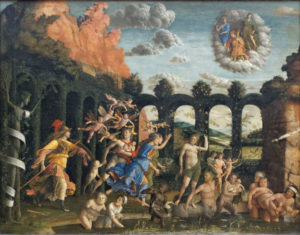 While the pandemic has forced our nation more into our homes, many of us of have taken refuge in Netflix, novels, and other forms of art. We have an innate sense that works of art, even those of popular culture, can really matter. We trust that there’s something valuable, even morally beneficial, about the plays of Shakespeare or the poems of Homer.
While the pandemic has forced our nation more into our homes, many of us of have taken refuge in Netflix, novels, and other forms of art. We have an innate sense that works of art, even those of popular culture, can really matter. We trust that there’s something valuable, even morally beneficial, about the plays of Shakespeare or the poems of Homer.
But what, precisely, does art do to our moral character? Does art alone suffice to form us? Must we be virtuous before we can appreciate art? Or can art instruct us in the virtues we lack? In this seminar, we will struggle with these and other questions about the relationship between art and virtue. Our primary interlocutors will be one ancient, Aristotle, and one modern, Søren Kierkegaard, though we will also seek the wisdom of Plato, St. Basil, and Proclus. The formal academic seminar will be supplemented by group play readings.
Working Together: The Person and the Common Good
Led by Joaquim Brooks
 In the last eight months the global pandemic has altered almost every aspect of our daily lives. We limit our social interactions, minimize our comings and goings, cover our faces when in public, and are constantly attentive to potentials for exposure. We make these sacrifices in order to protect the weakest in our society, and we employ strong language of obligation to justify these sacrifices. We have become a society united in common action to serve a common good.
In the last eight months the global pandemic has altered almost every aspect of our daily lives. We limit our social interactions, minimize our comings and goings, cover our faces when in public, and are constantly attentive to potentials for exposure. We make these sacrifices in order to protect the weakest in our society, and we employ strong language of obligation to justify these sacrifices. We have become a society united in common action to serve a common good.
The phrase The Common Good conjures up a flurry of conflicting, opposed, and often unrelated concepts. Some take it to mean a call to action to maximize the good for the greatest number of people. Others understand it as a justification for harming others in service of an ostensible “greater good.” Others still interpret it as a set of conditions within which personal flourishing occurs. Each of these descriptions is incomplete, but nevertheless point to something united about our political communities. This seminar is intended for those interested in what life in society looks like and who are dissatisfied with insufficiently integrated conceptions of that that life.
Deciding to Be Excellent: A Study in the Cardinal Virtues
Led by Maura Shea
 The word “virtue” seems to have lost a lot of its purchase in contemporary discussions of living life well, and one hears it used more often in pithy accusations like “virtue-signaling” rather than in serious inquiries into what qualities one needs to cultivate in order to live a life of beauty and excellence.
The word “virtue” seems to have lost a lot of its purchase in contemporary discussions of living life well, and one hears it used more often in pithy accusations like “virtue-signaling” rather than in serious inquiries into what qualities one needs to cultivate in order to live a life of beauty and excellence.
But Thomist philosopher Josef Pieper has an uncanny and arresting ability to refresh the classical language of virtue for us, and to unfold the power and attractiveness of prudence, justice, fortitude and temperance with lucidity and keen insight his book The Four Cardinal Virtues. The isolation of the past year has removed many of the structures and routines that concealed from us our own struggles with laziness, indecision, distraction, and selfishness, and now with dismay we watch these parts of ourselves rise to the surface as we struggle to focus during Zoom meetings, find ourselves sucked into the de-humanizing social media frenzy of the current political crisis, and wrestle with our disappointments around curtailed campus life.
Perhaps true self-care involves more than just a new exercise routine or meditation technique. It is high time to go back to the basics, to investigate the habits and dispositions that can cut through our confused and often erroneous notions about “being a good person”.
In this seminar, we will investigate how to live a beautiful life by growing in the cardinal virtues, and we will foster friendships in which we challenge one another in practical ways to cast off mediocrity and pursue authentic excellence. We will place a particular emphasis on prudence, which, Pieper insists, is not only the pre-eminent virtue without which we cannot hope to grow in any of the others, but also the least understood. It is, in fact, “the cause of the other virtues being virtues at all.”
Decide What to Do, and Go Do It: Learning to Act
Led by R. J. Snell
 Many have experienced the tendency to freeze up when trying to make a decision. We deliberate, decide, choose, and then . . . don’t do it. In part, contemporary figures such as Jordan Peterson are responding to this inability—but we’ll look prior, examining, in this short seminar, Thomas Aquinas’ account of imperium, or self-command, when we move from a proposal to a directive. Now deliberating is accomplished, act.
Many have experienced the tendency to freeze up when trying to make a decision. We deliberate, decide, choose, and then . . . don’t do it. In part, contemporary figures such as Jordan Peterson are responding to this inability—but we’ll look prior, examining, in this short seminar, Thomas Aquinas’ account of imperium, or self-command, when we move from a proposal to a directive. Now deliberating is accomplished, act.
2019-2020
ON THE PROBLEM OF PAIN
Led by: R. J. Snell, Director of Academic Programs at Witherspoon
Ryan Reed, Teaching Fellow at Christian Union Nova
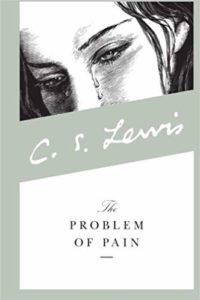
A follow-up to the fall seminar on loneliness, this five-week seminar works through C.S. Lewis’s The Problem of Pain. Topics include the classic problem of evil, namely, if God is all good and all powerful there should not be evil and suffering, so either God does not exist, or God is not good, or God is not all powerful. Other topics include human freedom and evil, the meaning and redemption of suffering (human and animal), and the question of eternal suffering, or hell.
WOMEN'S SEMINAR: THE MORAL VISION OF JANE AUSTEN
Led by Maura Shea
 Virginia Woolf, a famous author of the Modernist movement in the early 20th century, deeply admired Jane Austen but once quipped “that of all great writers she is the most difficult to catch in the act of greatness.”
Virginia Woolf, a famous author of the Modernist movement in the early 20th century, deeply admired Jane Austen but once quipped “that of all great writers she is the most difficult to catch in the act of greatness.”
This spring we will attempt to do just that. We are launching a seminar for women, open to undergraduates, graduate students, and young professionals in the community on the work of Jane Austen. We will start with an in-depth look at Pride and Prejudice, her most popular novel, as a way of examining male-female relationships, female friendships, courage & other virtues, and the complex task of “reading ourselves” and “reading others” with justice, charity, and truth.
ON INTEGRALISM AND LIBERALISM
Led by R. J. Snell
 This intersession seminar, for Princeton undergraduate and graduate students, explores current debates on integralism and liberalism.
This intersession seminar, for Princeton undergraduate and graduate students, explores current debates on integralism and liberalism.
We will try to understand the nature of the common good, political freedom, and why liberalism seems defunct to some. What is the proper relationship between church and state? Is a secular stance neutral regarding the goods of human life, or necessarily atheistic? This controversy is a live one among many, especially younger thinkers, and has implications for conceptions of freedom, morality, religion, family, authority, and more.
FINDING LIFE'S MEANING: ON WORK AND VOCATION
Led by R. J. Snell
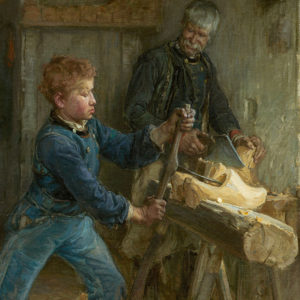 What is the point of work? An income? Prestige? Meaning? To better the world? Would we be better off if we didn’t need to work, or is labor a constituent aspect of the good life?
What is the point of work? An income? Prestige? Meaning? To better the world? Would we be better off if we didn’t need to work, or is labor a constituent aspect of the good life?
Many consider their work as closely related to their identity and purpose, as linked to a sense of self-worth. If that’s true—and not everything thinks it is—then finding “good” work is related to a good life. Moreover, if our work and our identity relate, some work might not be “right” for you, even if it might be right for someone else. Or, perhaps this is all overblown and it doesn’t much matter what one does, it’s just a job, after all.
This Fall seminar launches a theme for the year—Finding Life’s Meaning—in which we consider the nature and meaning of work, with a follow-up spring seminar on the meaning of vocation—and how to discover one’s vocation.
FACING LIFE'S CHALLENGES: LONELINESS AND SOLITUDE
Led by R. J. Snell
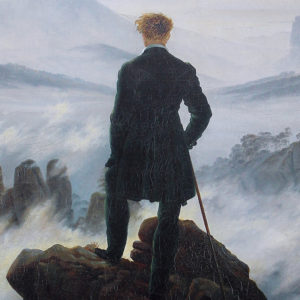 Loneliness has been described by some as an “epidemic,” with severe consequences for health, flourishing, and political society. Further, despite the flurry of literature and studies on the subject, the evidence indicates that loneliness is growing, including for college students—and not just for freshmen who haven’t yet found friends on campus.
Loneliness has been described by some as an “epidemic,” with severe consequences for health, flourishing, and political society. Further, despite the flurry of literature and studies on the subject, the evidence indicates that loneliness is growing, including for college students—and not just for freshmen who haven’t yet found friends on campus.
Loneliness is strange. As Olivia Laing puts it in The Lonely City, which must have hit a cultural nerve since it was named a best book of the year by NPR, Newsweek, Slate, Pop Sugar, Marie Claire, Elle, Publishers Weekly, and others, “loneliness doesn’t necessarily require physical solitude, but rather an absence or paucity of connection, closeness, kinship: an inability, for one reason or another, to find as much intimacy as desired.” Yet, as she continues, even though so many are lonely, many pretend not to be, for “loneliness is difficult to confess,” especially since it’s sometimes (wrongly) “considered a disease.”
But loneliness doesn’t seem to be a pathology, not even a transient experience; rather, it seems part of the human condition, part of what it means to be human. Ben Lazare Mijuskovic claims not only that loneliness is an aspect of having consciousness and personal identity, but that the attempt to overcome loneliness is the primary motivation for everything we do. Classical philosophers claimed that we sought happiness in every action, but Mijuskovic thinks we’re trying to escape our solitary confinement.
This Fall seminar launches one theme for the year—Facing Life’s Challenges—in which we consider loneliness and solitude in the fall, a lack of social and political trust and capital during Intersession, and a spring seminar on suffering and loss. Human flourishing isn’t an abstraction but a concrete reality, and thus it will be found right in the middle our lives, lives which are sometimes hard, lonely, and difficult—and, yet, flourishing is still possible.
Like all Witherspoon seminars, we’ll read important texts—classic and contemporary—not out of curiosity or simply to learn, but in the attempt to find wisdom, to know how best to live and think and act so as to live well and flourish. And we try to seek for wisdom collegially, with friends of the mind, with any point of view considered.
THE DEFEAT OF WORDS: ON LYRIC POETRY
Led by Maura Shea
 “I don’t know how to explain it.”
“I don’t know how to explain it.”
“I just couldn’t put it into words.”
“I have no words.”
Most of us have felt our poverty in relationship to language sometime in our lives, perhaps rather frequently. Maybe it’s while writing a paper for a class. Maybe it’s in trying to express how we feel about someone dear to us. Maybe we’ve resorted to emojis when our fingers fail to find just the right phrase to text.
What does poetry have to do with this experience?
Emily Dickinson advises us, “Tell all the truth but tell it slant.” There is something about lyric poems—often short, personal, oblique, intense—and the way they seek to tell the “truth” about experience in a “slanted,” sometimes disorienting manner—that refreshes our experience of language, of others, of being itself. Lyric poetry invites a unique kind of response from us that other modes of language do not, and puts into words the kinds of human experiences that other modes of language cannot.
People sometimes struggle to read poetry or to find pleasure in it because of past experiences of being forced to “analyze” it convincingly or come up with some kind of intelligent interpretation of it. Some are frustrated with poetry’s lack of practicality—what is it for, we wonder? Some are put off by its resistance to clear explanation—it is unnecessarily confusing, we complain. “I, too, dislike it,” Marianne Moore memorably begins her poem aptly titled “Poetry.”
This seminar proposes a friendly, exploratory engagement with lyric poetry in hopes that, by contending with its unique demands together, we might cultivate habits of attention that help us read ourselves and the world around us better. We may even discover language that does some justice to our experiences of loneliness, gratitude, wonder—as one poet has noted: “It is by words and the defeat of words” that we learn to read the world anew.
2018-2019
SMALL VIRTUES, BIG LIVES: ON MEANING-FULLNESS
Led by R. J. Snell
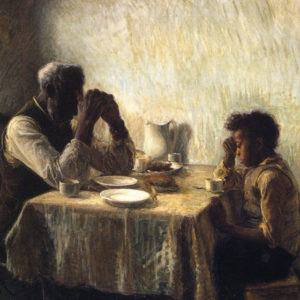
In our time many are hesitant about seriousness. We value spontaneity and irony more than seriousness. Aren’t serious people likely to be dogmatists or fundamentalists, people serious about things that many people can no longer take very seriously? Aren’t many people agnostic about the “big stories” of meaning that seriousness assumes? Are agnostics or others suspicious of seriousness unable to live full lives, and in what ways can those who remain committed to the “old” seriousness share virtue with existential agnostics? Many, not all, such agnostics have turned to notions such as “the practices of everyday life,” “the school of life,” or “the art of living” in order to imbue their daily lives with a sense of purpose or beauty that they no longer find in traditional ideas of transcendence, religion, living according to nature, citizenship, or humanism.
In other words, should serious people also be serious about the everyday practices, not only because they are part of living well, but also as a place of contact and accompaniment with existential agnostics? Perhaps, even, as a way to show how the small virtues point beyond themselves to something bigger, something the tradition took with utter seriousness?
GOD, LOVE, AND LAW: A CONVERSATION
Led by Luis Tellez
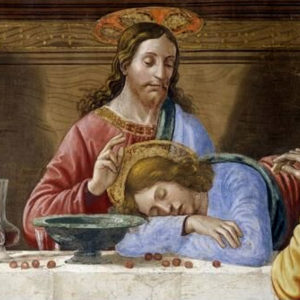 Luis Tellez, founder and president of the Witherspoon Institute, will lead this seminar using his recently published book, Integrating God+Love+Law Into Your Life, a brief but profound guide to living an examined and fulfilling life. Drawing from thirty years of experience helping Princeton students navigate life in the Orange Bubble and beyond, Tellez returns to lead the academic year seminars, which he began in the Fall of 2013. Eschewing the third person, Tellez’s book demands that you frame the great questions in life with immediacy, asking not ‘How should one live one’s life?’ but rather ‘How should I live my life?’ Over the course of this seminar, Tellez will argue that the key to a well-lived life is attaining an understanding of ‘love’ and ‘law.’
Luis Tellez, founder and president of the Witherspoon Institute, will lead this seminar using his recently published book, Integrating God+Love+Law Into Your Life, a brief but profound guide to living an examined and fulfilling life. Drawing from thirty years of experience helping Princeton students navigate life in the Orange Bubble and beyond, Tellez returns to lead the academic year seminars, which he began in the Fall of 2013. Eschewing the third person, Tellez’s book demands that you frame the great questions in life with immediacy, asking not ‘How should one live one’s life?’ but rather ‘How should I live my life?’ Over the course of this seminar, Tellez will argue that the key to a well-lived life is attaining an understanding of ‘love’ and ‘law.’
HEROES AND SAINTS: MYTHS AND LEGENDS
Led by José Pérez-Benzo
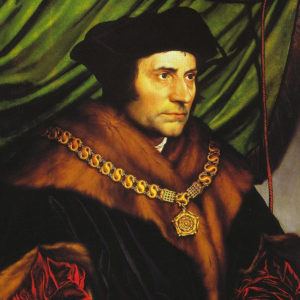 ‘I want a hero: an uncommon want.’ Though ours is an age suspicious of the very notion of heroism, this seminar will argue that human nature contains within itself an ineradicable desire for heroes. We will examine heroism not primarily as a concept in the abstract, but rather we will witness how people both historical and fictional have embodied the concept of heroism in history. Alexander the Great and Julius Caesar, Augustine and Abelard, Cesare Borgia and Thomas More—these figures and many others we will study both exemplified and shaped their respective communities and cultures, simultaneously illustrating both how heroism changed from the Ancient to the Medieval to the Modern periods and how the need for heroes endured despite such changes. Through readings taken from Homer and Plato, Plutarch and Cicero, Machiavelli and More, we will survey the present day in search of heroes who reflect and shape our contemporary world. Everyone has heroes. It behooves us to know who our heroes are, because we become that which we admire.
‘I want a hero: an uncommon want.’ Though ours is an age suspicious of the very notion of heroism, this seminar will argue that human nature contains within itself an ineradicable desire for heroes. We will examine heroism not primarily as a concept in the abstract, but rather we will witness how people both historical and fictional have embodied the concept of heroism in history. Alexander the Great and Julius Caesar, Augustine and Abelard, Cesare Borgia and Thomas More—these figures and many others we will study both exemplified and shaped their respective communities and cultures, simultaneously illustrating both how heroism changed from the Ancient to the Medieval to the Modern periods and how the need for heroes endured despite such changes. Through readings taken from Homer and Plato, Plutarch and Cicero, Machiavelli and More, we will survey the present day in search of heroes who reflect and shape our contemporary world. Everyone has heroes. It behooves us to know who our heroes are, because we become that which we admire.
THE ART OF FRIENDSHIP
Led by José Pérez-Benzo
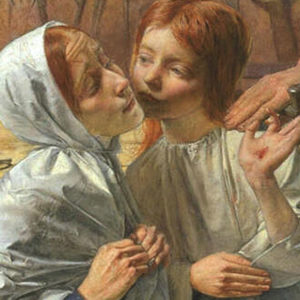 True to its name, this seminar aims to treat friendship not as a theory but as an art, identifying the particular set of practices and actions associated with the classical ideal of friendship and seeking to embody them in our own lives. While we will devote some initial discussion to the philosophy of friendship, as beautifully laid out in Michael Pakaluk’s elegant anthology Other Selves: Philosophers on Friendship, the bulk of the discussion will turn on such questions as: How do I make friends? How do I tell a flatter from a friend? How do I befriend people who do not share my values? Is it ever appropriate to dissolve a friendship, and if so how? How do I maintain friendships across distances? This seminar will seek to address these vexing questions about the art of friendship by viewing art in a twofold sense as both craft and culture. Viewing the art of friendship through the lens of culture by appreciating depictions of friendship in poetry and prose, in painting and in sculpture, will bring into sharper focus the craft of friendship in our own lives. It is the goal of this seminar to form and foster friendships, with Virgil and Dante, Roland and Oliver, Rosalind and Celia, Francis and Clare, Tolkein and Lewis, and dozens more as guides.
True to its name, this seminar aims to treat friendship not as a theory but as an art, identifying the particular set of practices and actions associated with the classical ideal of friendship and seeking to embody them in our own lives. While we will devote some initial discussion to the philosophy of friendship, as beautifully laid out in Michael Pakaluk’s elegant anthology Other Selves: Philosophers on Friendship, the bulk of the discussion will turn on such questions as: How do I make friends? How do I tell a flatter from a friend? How do I befriend people who do not share my values? Is it ever appropriate to dissolve a friendship, and if so how? How do I maintain friendships across distances? This seminar will seek to address these vexing questions about the art of friendship by viewing art in a twofold sense as both craft and culture. Viewing the art of friendship through the lens of culture by appreciating depictions of friendship in poetry and prose, in painting and in sculpture, will bring into sharper focus the craft of friendship in our own lives. It is the goal of this seminar to form and foster friendships, with Virgil and Dante, Roland and Oliver, Rosalind and Celia, Francis and Clare, Tolkein and Lewis, and dozens more as guides.
ADDITIONAL PAST TOPICS
• Rhetoric: Living Well and Speaking Well
• Incommensurability and the Final End
• Ambition: Intellectual, Moral, Political
• Christianity, Open-Mindedness, and the Intellectual Virtues


